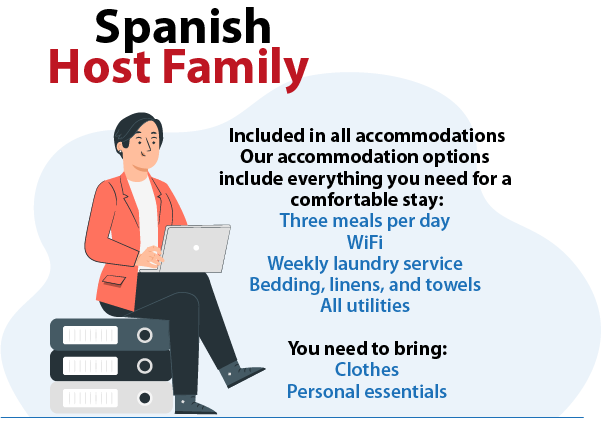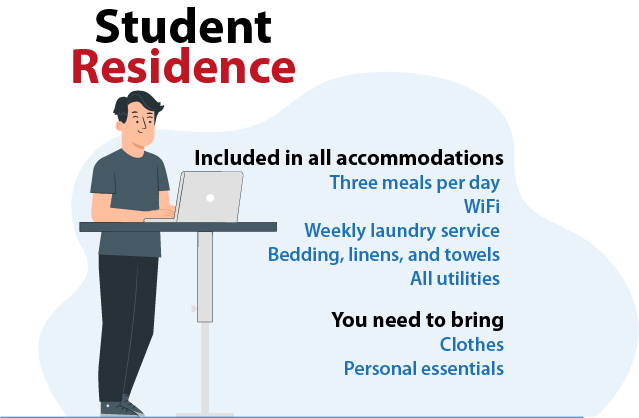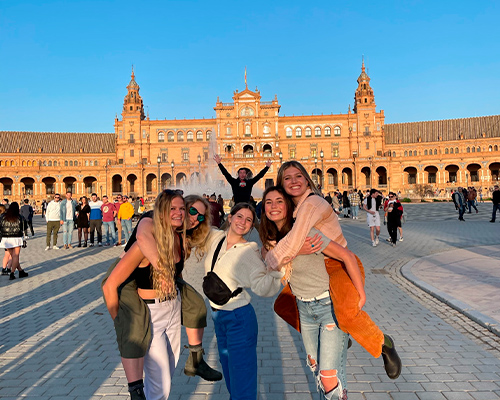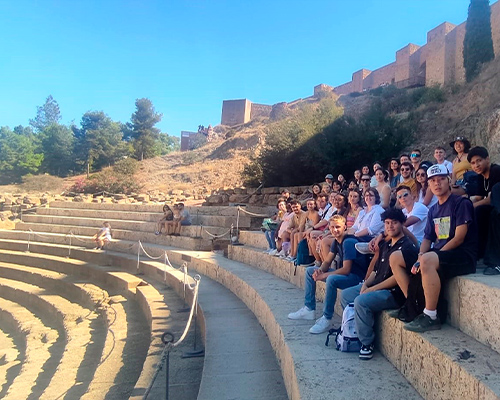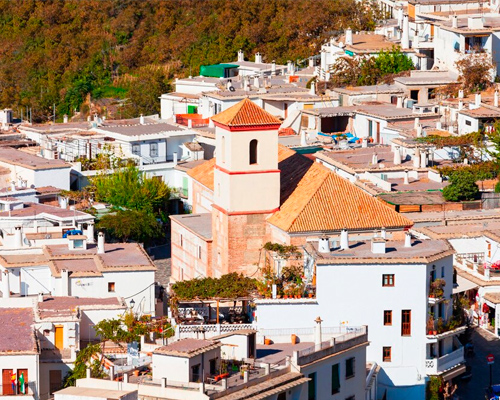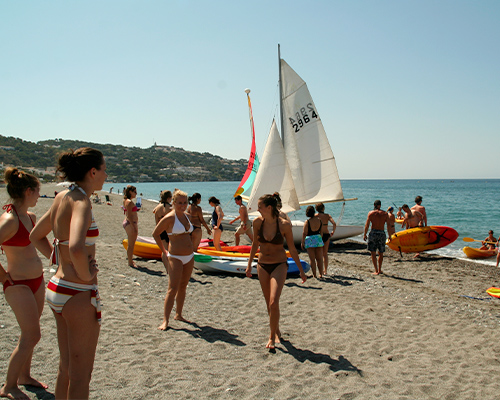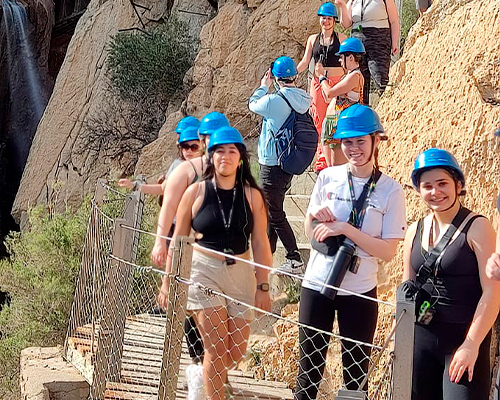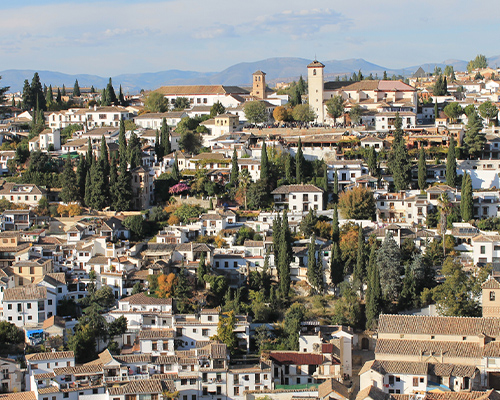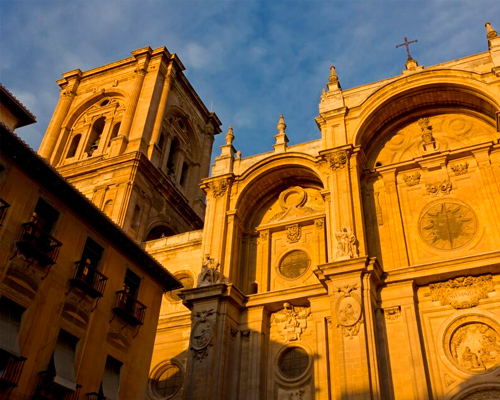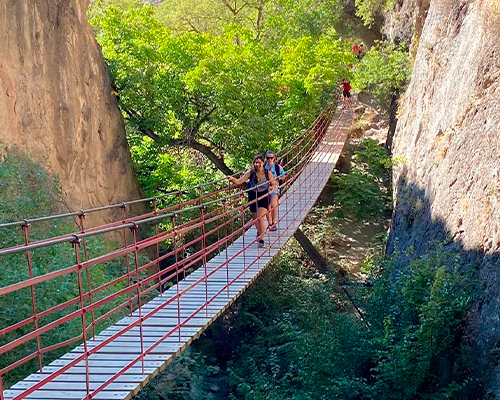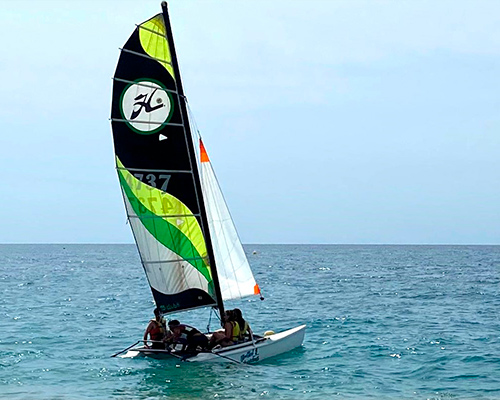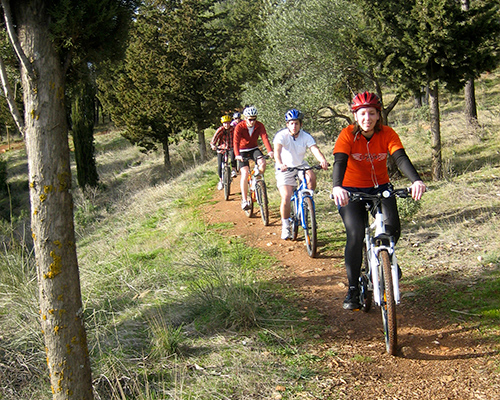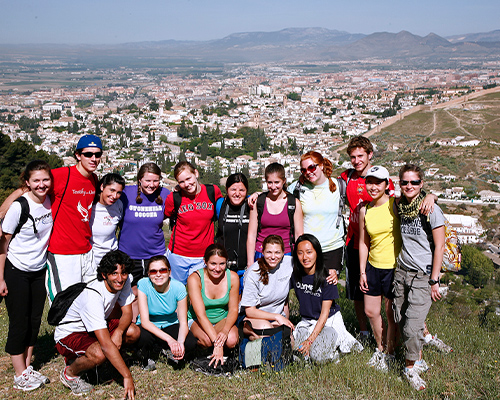Extended Semester Program
The Extended Semester has two parts:
- A 3-4 week Intensive Spanish Language Course to enhance your skills before the semester begins.
- A semester-long course—either Spanish Language and Culture or Hispanic Studies—based on your Spanish level, which you’ll determine with a placement test when you arrive.
We highly recommend the Extended Semester for all students! It’s the perfect way to boost your Spanish before the semester starts, helping you engage more confidently with the culture and navigate daily life like a pro.
Course Information
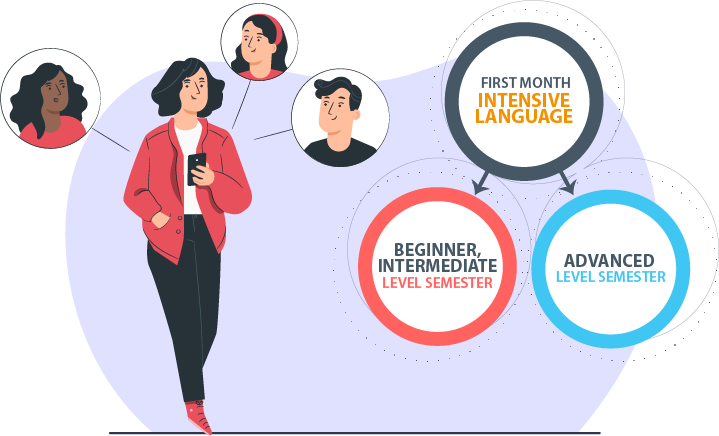
First: Intensive Spanish Language Month
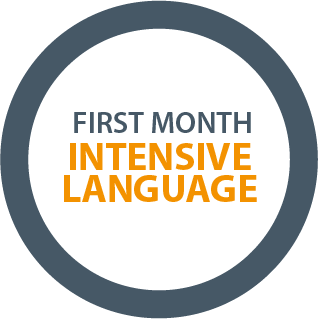 For your first month you will be enrolled in the Intensive Spanish Language Course (CILE). You will take a level test when you arrive and be placed into class at the level which best suits your abilities. Classes are available at all levels, from A1 to C1.
For your first month you will be enrolled in the Intensive Spanish Language Course (CILE). You will take a level test when you arrive and be placed into class at the level which best suits your abilities. Classes are available at all levels, from A1 to C1.
You can find descriptions for the different levels on the classes and syllabi tab above. Be sure to check with your home institution for course equivalencies.
Classes will be 4 hours of class per day, 5 days a week and are usually sometime between 8:00 am – 2:30 pm.
At the end of the month you will take a final exam. Providing you study well, participate in class and pass this exam, you will move up one language level in time to start the full semester.
Students who are in levels 1 – 6 at the end of the intensive language month will move on to the Spanish Language and Culture Course (CLCE) for the rest of the semester.
Students who are in levels 7 – 9 at the end of the intensive language month will move on to the Hispanic Studies Course (CEH) for the rest of the semester.
Second: Spanish Language and Culture Semester (Beginner/Intermediate)
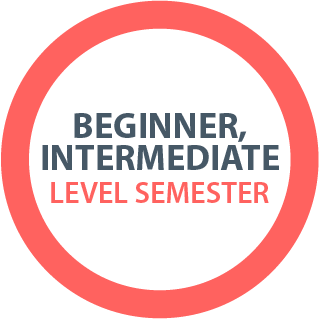 The Spanish Language & Culture Course (CLCE) is designed for students at the beginner to intermediate levels (levels 1–6) who want to enhance their Spanish language skills while exploring academic subjects in various disciplines.
The Spanish Language & Culture Course (CLCE) is designed for students at the beginner to intermediate levels (levels 1–6) who want to enhance their Spanish language skills while exploring academic subjects in various disciplines.
This course consists of five 45 hour classes (225 total hours):
- Two mandatory classes (required for all students):
- Spanish Grammar
- Spanish Speaking & Writing Skills
- Three elective classes (chosen based on proficiency level):
- Beginner (Levels 1–4): Select three courses taught in English
- Intermediate students (Levels 5–6): Select three courses taught in adapted Spanish
In total, students will complete five courses—two core classes and three electives—tailored to their language level.
Additionally, students at level 5 and above have the opportunity to complete an internship for valuable, hands-on experience.
Full course descriptions and syllabi are available on the Classes and Syllabi tab above. Students should verify course equivalencies with their home institution.
Second: Hispanic Studies Semester (Advanced)
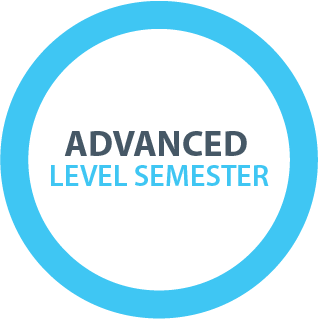 The Hispanic Studies Course (CEH) is designed for advanced Spanish students (levels 7–9) who have a strong command of the language and wish to focus on academic content courses across various disciplines.
The Hispanic Studies Course (CEH) is designed for advanced Spanish students (levels 7–9) who have a strong command of the language and wish to focus on academic content courses across various disciplines.
The course consists of five 45 hour classes (225 total hours):
- One mandatory class (required for students at CLM Level 7–8).
Choose one of the following:- Spanish Grammar
- Oral Interaction & Production
- Writing Texts in Spanish
- Four elective classes
In total, students will complete five class — one core class and four electives — tailored to their academic and language goals.
Additionally, students have the opportunity to complete an internship for valuable, hands-on experience. There is also the possibility to enroll in 1–2 courses at other University of Granada faculties for a broader academic experience.
Full class descriptions and syllabi are available on the Classes and Syllabi tab above. Students should confirm course equivalencies with their home institution.
Classes & Syllabi

The syllabus is available for download by clicking on the class title.
Internships

The internship program allows participants to apply their knowledge in real-world settings while deepening their understanding of Spanish language and culture. With six specialized tracks, the program provides a valuable opportunity for professional and academic growth. Internships are available during the fall semester (October–December), the spring semester (February–May), and the summer month of June.
Internships will count as one of the classes that students enroll in during their studies at the Center of Modern Languages. There is no additional fee for participating in 45h internships.
Requirements:
- Acceptance to the CLM Study Abroad Program
- Achieve the minimum Spanish language level required (see below)
- Provide the Criminal Record Background Check, complete with the Hague Apostille Seal for international validity (further instructions on APPLY NOW page. Only required for Internship in Health Centers, Internship in Educational Institutions and Internship in Service Learning and Community)
The program offers a variety of specialized internship tracks, available for students with certain levels of Spanish. For a detailed description of each, please consult the complete internship guides below:
For students at levels 5 or 6:
For students at level 7 and above:
Accomodation

Finding the right place to live is an important part of making the most of your study abroad experience in Granada. You can choose between two great options: staying with a host family for an immersive cultural experience or living in a student residence for more independence and social opportunities.
Students who are accepted to the program will receive their finalized housing assignment via email one month before their program start date. We’ll go over the specific rules and guidelines of your accommodation during the program orientation. This will give you a clear understanding of what to expect and ensure a comfortable stay.
For students looking for full cultural immersion, living with a host family is the best way to experience authentic Spanish daily life. You’ll have your own, private bedroom in a welcoming home, share daily meals with your hosts, and engage in everyday conversations that will greatly improve your Spanish.
Many families treat students as part of their household, inviting them to family activities, helping them navigate the city, and sharing insights into Spanish traditions. This option is ideal for students eager to enhance their language skills and build meaningful connections while experiencing life from a local perspective.
If you prefer more independence while still being part of a vibrant student community, our student residences are a fantastic choice. Located in charming historic buildings, each residence offers private bedrooms with shared bathrooms and communal spaces where you can connect with fellow students from around the world. Residences provide a balance of privacy and social opportunities, making them perfect for those who want a dynamic environment.
Activities & Excursions

The CLM Study Abroad program includes a diverse range of activities to help you fully experience Granada and Andalusia, and to keep you engaged with your surroundings and peers.
The Extended Semester Program includes approximately 5 or 6 field trips, 4 or 5 walking tours & cultural visits, and sports activities. Additionally, all CLM students are invited to participate in the weekly language exchange and CLM workshops.
An individually tailored Cultural & Sport Activities Calendar will be shared with each student via email, approximately 1 month prior to their program start date. CLM Study Abroad students are required to attend the activities included. We ask that all students wait to make travel plans until the receipt of this calendar.
Although each activities will very according to semester, below you can see some examples of potential activities:
Field Trips:
Córdoba
Sevilla
Málaga
Alpujarra
Costa Tropical
Caminito del Rey
Walking Tours & Cultural Visits:
Alhambra
Albaicín
Cathedral
Sports Activities:
Los Cahorros
Costa Tropical
Pinos Genil
Llano de la Perdiz
Workshops:
- Semester Inauguration Celebration
- Flamenco Workshop
- Carnaval Roda de Samba
- CLM Sound
- Film Fest
- Poetry Recital
- Latin Jazz Concert
- Olive Oil and Beer – Extraction and Elaboration
- Semester Closure Celebration
Weekly Language Exchange:
The language exchange is a casual meet up where language learners connect to practice speaking and improve their skills. Participants are grouped based on the languages they want to learn and share, taking turns practicing their target languages while helping others with theirs. It’s a fun, engaging and interactive way to learn, exchange cultures, and meet new people.
Extras

In addition to your academics, room and board, and activities, the CLM Study Abroad program includes a variety of extra services designed to enrich your experience and ensure your peace of mind.
- Medical Insurance – Fully comprehensive health insurance throughout your stay including specialists and emergency treatment.
- 24-Hour Emergency Phone Line – Contact your Coordinators easily in an emergency.
- Language Exchange – Practice Spanish with locals and improve your fluency in a natural, engaging way.
- Internships – Gain valuable professional experience and enhance your resume through practical, hands-on opportunities in your field.
- Official Transcript –Your official transcript will be sent to you university on completion of your program.
- Orientation & Handbook – An informative orientation session on arrival and to help you settle in and a handbook with essential information to navigate life in Granada.
- Ongoing Advice & Support – A dedicated office and coordinators to offer guidance when you need it.
These services ensure that your time in Granada is not only academically enriching but also safe, supported, and unforgettable.
 = SPANISH /
= SPANISH /  =ENGLISH
=ENGLISH
